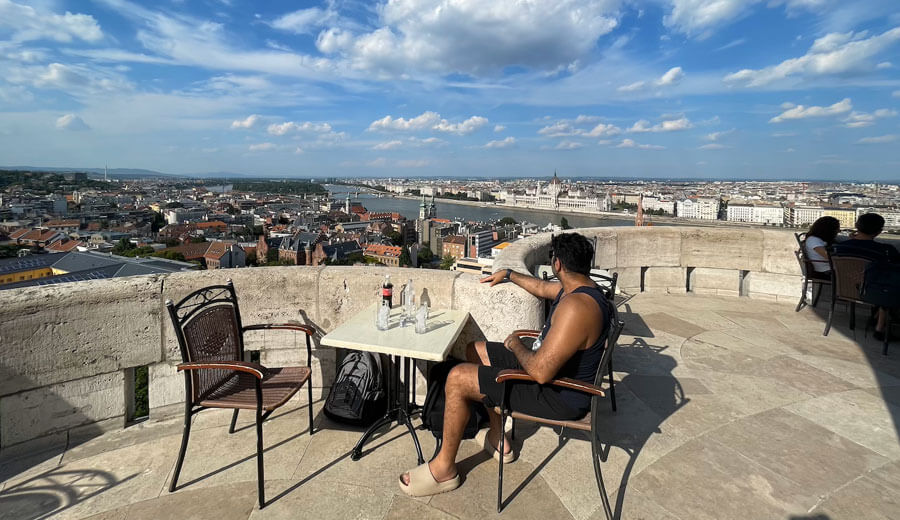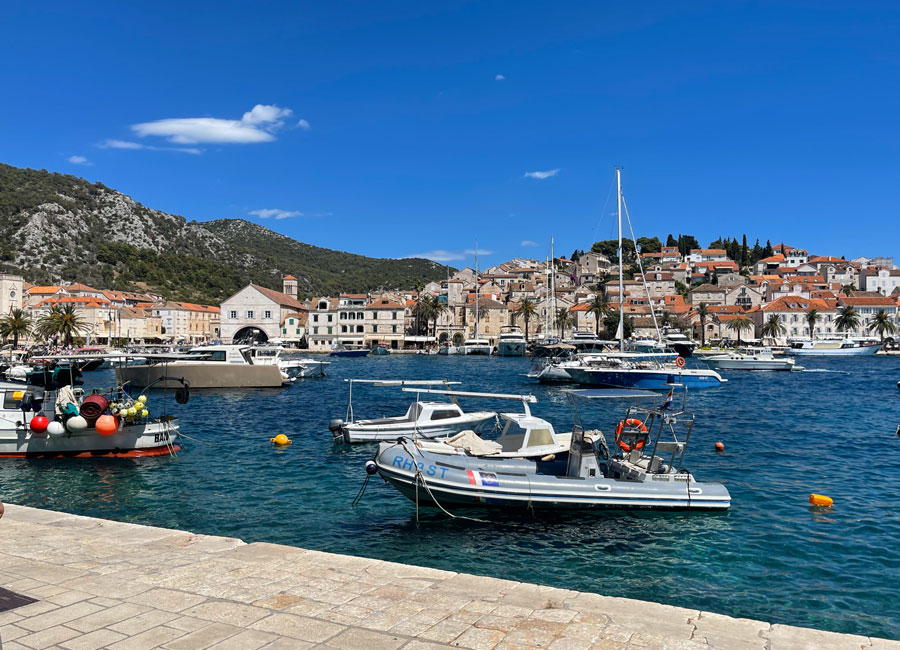
By: Kavan Sohal Sep 25/2024
Workcations, or working vacations, are a policy where you can go on a vacation while working. But why would you ever want to go on a workcation, if you are trying to get away from work? Great question. The benefit is that you can spend more time travelling abroad than on your typical vacation. Of course, the one drawback is if you like to go on vacation to wind down and get away from work, you aren’t going to get that full escape experience and for some people who are going on vacations to avoid burnout, it’s likely not the best way to go about it.
Here at Snaptech, we truly value having a good work-life balance. Whether that’s clocking out on time, having a policy for appointment time, or implementing working vacations when needed. As a company made up of individuals from all corners of the globe, some of our families live far away and our standard vacation allotment isn’t always enough time for visits (not to mention, it’s tough to take all that time off at once). Enter the working vacation policy to solve this challenge or, in the case of what you’re about to read, enjoy an extended trip abroad. After all, flights across the Atlantic aren’t cheap and our well-travelled team members want to maximize their time, even if that means putting in some work hours while overseas.
Our Head of SEO, Kavan Sohal, is making the most of our workcation policy. As an expert SEO strategist, it’s no surprise that he’s also able to strategize the best way to execute a successful working vacation. Read on for his tips and tricks for balancing work and life during a working vacation.

My first experience with a workcation was when I first joined Snaptech, as it was something I had planned before joining Snaptech. I left for about six weeks and was lucky enough to see family in England, visit the beautiful cities of Budapest and Prague, and a few amazing cities within Croatia including Hvar, Dubrovnik, and Zagreb. In normal situations, I would not have been able to see even half of those places, let alone family.
So, how did it work? Basically, during my workcation days, I would get up early and work early in my time zone and ensure I had 2-4 hours of crossover with the team back in Vancouver, which would usually be in the evening. My day would be broken up into two chunks which worked perfectly, as it allowed me to check out restaurants and sights during the afternoon, and work during the evening while my travelling companions slept or got ready for a night out.

In England, it was great when I was visiting family, as when my family was working I would also be working at the same time and then be free for the evening, allowing me more time to enjoy my time with them.
My second experience was in Panama and Columbia. Once again, even though the time differences were less extreme than in Europe, I still split my day into two, although my time connecting with the team had a larger overlap. While I did miss out on some things during the day that my friends were checking out, it allowed me to spend more time in each city. Overall, I prefer to stay longer in each location rather than have a full but much more compact vacation.
The company also benefited as I wouldn’t ever be gone for longer periods, so if anything urgent popped up or if the team had questions or needed to connect, I was available. They didn’t need to wait a week or two without me being in the picture.
My third and most recent experience was another European trip, this time to Spain and Portugal. I visited five cities—Barcelona, Seville, Madrid, Porto, and Lisbon—and was able to identify areas to work from where there were fewer sights to check out but were better for enjoying the culture and food. This way I was able to take days off in other areas that had more that I wanted to see and do. For example, I worked a lot more in Porto, as I knew it would be a more chill experience with fewer historical sites versus Barcelona and Madrid where there was more that I wanted to do in terms of sightseeing and visiting restaurants.
One strategy I employ to ensure I have enough time to enjoy my trip is to book my workcation days and times either earlier in the week or midweek to have extended long weekends. I also strategically choose my locations so I’m not working in a city with a lot to explore and see versus somewhere more chilled where I’d be okay to work and not feel like I’m missing out on anything. In some ways, a successful workcation does require additional forethought to determine a good course of action.
It’s also good to consider your travelling companions and their habits. Are they early or late risers? If late, you can adjust your own schedule to get in some work hours before they’re up and about. Are you visiting family abroad who will also be working during your visit? This makes it easier to get some work done without feeling guilty that you’re not spending time with them. These are all questions that I consider when booking my working vacation time. Based on this, I can try to take advantage of those time gaps to get the most out of my workcation.
If you’re travelling solo, know your habits and itinerary to best plan around what you want to do and see so you can still get work in without feeling like you’re missing anything.
It’s also worth taking a moment to think about why you’re taking a workcation versus a regular vacation. If you’re looking to spend more time exploring and visiting more places but feel you can juggle work to have more time away from home, it’s worth it. If you’re trying to avoid burnout, however, it might not be the best option for you. If you’re simply looking for more time to relax while travelling abroad, consider whether or not you’ll be able to relax with the expectation of balancing work during your trip. That is not to say you can’t relax on a workcation, but they’re not for everyone.

With all that said, I personally love the working vacation policy as it allows me to spend more time abroad enjoying the sights, taking in new cultures, and breathing a little bit without having to be rushed in trying to take in a whole vacation in a shorter period. While I understand that workcations are not for everyone and I’m unlikely to want to work on a shorter time away, I find it’s an excellent way to see more of a country, area, or region without using up all of your vacation days at once and getting to explore more for longer. There’s additional planning that is required to ensure you’re getting the most out of your vacation and still being available to your team, but if you do it right, it allows for some amazing experiences.
Interested in learning more about the benefits of working at Snaptech? Check out our Careers page.